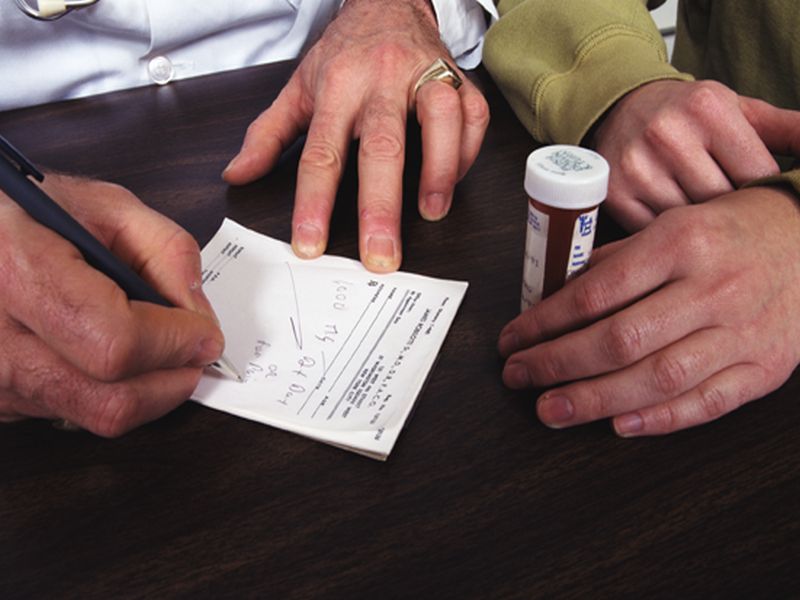THURSDAY, Jan. 17, 2019 (HealthDay News) — Nearly 25 percent of antibiotics prescribed in the United States are given for conditions they aren’t meant to treat, a new study finds.
Antibiotics are miracle drugs that can cure deadly bacterial infections. But too often they are given to treat viral infections, such as colds and flu, for which they are ineffective.
And the overuse of antibiotics brings public health dangers, experts have been warning.
“Antibiotic prescribing is a major driver of the development of bacteria that are resistant to antibiotics,” said lead researcher Dr. Kao-Ping Chua, an assistant professor of pediatrics at the University of Michigan in Ann Arbor.
Antibiotic-resistant bacteria are one of the greatest threats to health worldwide, he said.
Every year, 2 million Americans develop antibiotic-resistant infections and 23,000 die, according to the U.S. Centers for Disease Control and Prevention.
“Given this, it is urgent for providers to eliminate inappropriate antibiotic prescribing, both for the sake of their own patients and for society more broadly,” Chua said.
For the study, Chua and his colleagues studied insurance records of more than 19 million kids and adults under age 65. All patients were privately insured.
The researchers said more than 23 percent of prescriptions were inappropriate, or not medically justified. The inappropriate prescriptions were mostly for colds, chest infections and coughs.
About 36 percent of the prescriptions might have been appropriate but unnecessary, because they were for conditions like sinusitis and sore throats, which can be viral.
Most of the inappropriate prescriptions came from doctor offices, urgent care centers and emergency rooms. Almost 29 percent of prescriptions had no diagnosis code and might be inappropriate because some were given based on phone or online consultations, the study found.
Researchers found that 1 in 7 patients filled at least one unnecessary antibiotic prescription in 2016. That translates to 1 in 10 kids and about 1 in 6 adults.
“The most recent national studies on antibiotic overuse in the U.S. used older data from the first half of this decade,” Chua said. “Our study shows that despite widespread quality improvement efforts, inappropriate antibiotic prescribing was still rampant in 2016.”
Dr. Marc Siegel, professor of medicine at NYU Langone Medical Center in New York City, is convinced inappropriate antibiotic prescriptions are more widespread than this study found.
“We overprescribe antibiotics in a big way for sure,” he said.
The reasons are many and varied. For one, Siegel said, nearly all upper respiratory infections are viral, but many doctors fear missing the rare bacterial infection and prescribe an antibiotic just in case. And patients often demand them.
Doctors need to ask more questions about the patient’s condition before writing a prescription, he said.
“It’s a clinical decision whether to prescribe antibiotics,” Siegel said. “We tend to rely on wanting to make the patient feel better.”
While doctors often think there’s no harm in giving a pack of antibiotics, doing so can cause problems for some patients.
For example, patients with heart conditions may develop an irregular heart rhythm from some antibiotics, Siegel said. Antibiotics may also kill off children’s gut bacteria, putting them at risk for allergies, he added.
“Patients shouldn’t push their doctors for antibiotics,” Siegel said. “Physicians, don’t feel pressured to give a pill that may not be necessary.”
The report was published online Jan. 16 in the peer-reviewed medical journal The BMJ.
More information
The Mayo Clinic offers more about antibiotics.
Copyright © 2026 HealthDay. All rights reserved.

